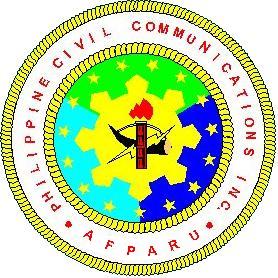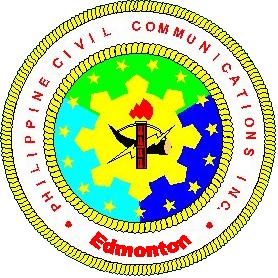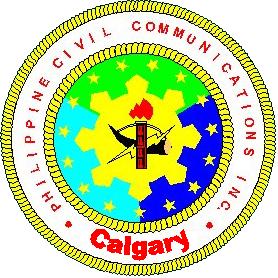 *PHILCCOM* EchoLink Conference
*PHILCCOM* EchoLink Conference
The Philippine Civil Communications operates an EchoLink conference server, *PHILCCOM* (node 48655).
Background
EchoLink is a voice over IP
system that allows amateur radio operators (only) to talk over the Internet.
Users may be at a computer, or using a radio link or linked repeater.
Read more about it on the EchoLink page.
User Software
and they're all free!
Server Info
The *PHILCCOM* conference server runs on a laptop computer with a Genuine Intel Celeron Processor and 64.0 MB of RAM. It's a generic PC running the Windows 98SE operating system, and it has excellent high-speed cable internet connections.
The conference is always up, except for occasional maintenance.
The conference server software is called theBridge, and it comes
from the CQiNet family of free,
open source programs for voice over IP.
To send a command to the server, you just type it into the message line
in your EchoLink window. The very first character you type must be a period
(.) -- that's how the server recognizes that it's a command. The following
commands are available to users:
- .help
- The server responds with a list of available commands.
- .about <callsign>
- The server responds with the info provided by the specified station.
This is the same info you'd see in the info window if you were directly
connected to that station.
- .list
- The server responds with a list of recorded audio files you can play
back using the .play command.
- .play <item number>
- The server plays back the recorded item you specified, including both
audio and text messages. While the item is playing, you are effectively
disconnected from the conference: you won't hear live audio or see live
text messages, and other users won't see you on the station list. To stop
playback, you can use the .stop command, or just
disconnect from the server.
- .lurk
- Removes you from the visible list of stations, without disconnecting you
from the conference. This is useful if you just want to listen and not be
included in the conversation. You can still transmit if you want, and if
you do you'll automatically be added back to the list of stations. You can
also get back on the list by using the .delurk command.
- .test
- The server responds with an acknowledgement, and then records your next
audio transmission and plays it back to you. Other users don't hear it.
Use this to test your audio setup. Wait for the acknowledgement! If you don't
get the acknowledgement, the server isn't in .test mode and your transmission
will go out to the other users.
- .stats, .uptime, and .version
- The server responds with the corresponding technical data about the operation
of the conference server.
Scheduled Nets
If you run a local PHILCCOM-related net, and you have the consent of the
net manager and the repeater operator, and you want to expand your
coverage to the rest of the world, you may link your net into the *PHILCCOM*
conference server. Before you do, please send email to
ve6afp@rac.ca with all the details,
so your net can be listed here. (See also the
list of PHILCCOM nets on
the radio.)
If you're interested in establishing a new net exclusively for users of
the *PHILCCOM* conference server, send email to
ve6afp@rac.ca. Be aware that it's a
long-term commitment, and can be a lot of work.
Announcer(s) Needed
Jose Talens, VE6JNT, has begun making the PHILCCOM News Service
bulletins available for playback using the .play command.
This is not so much for the regular PHILCCOM crowd as for the
casual EchoLink user who might drop in to the conference server.
If you have a pleasant speaking voice and a quiet room, and you'd like
to help out as an announcer, send email to
ve6afp@rac.ca.
Operating Guidelines
Usual operating practice on EchoLink is to operate just as if you were
on amateur radio. If any link station (callsign-L) or repeater station
(callsign-R) are connected to the conference, you are on the radio.
Be aware that other users may be anywhere in the world. Please use common
sense and courtesy.
Specifically, pretend you are on a busy repeater. That means:
- Identify with your callsign now and then. You don't need to ID every
transmission.
- Leave a pause of a few seconds between transmissions. This gives
others a chance to break in. It also lets linked radios and repeaters
drop out, so they don't time out.
- If several people are active in the conversation, consider turning
it over to one specific station at the end of each transmission. Don't
consider this mandatory, though. If there is a logical next person to
speak, let that person speak. If not, then a simple rule is to rotate
speakers in a fixed order. (The on-screen station list makes this easy.
It is kept sorted with the most recent speakers on top. So just turn it
over to the station on the bottom, or the lowest station who is actively
participating.)
- If you want to have a long conversation with one other station, and
the subject is not going to be interesting to others, consider dropping
out of the conference and connecting directly. If you talk about something
interesting, please stay on the conference!
Support PHILCCOM
If you enjoy the *PHILCCOM* conference server and you're not yet a
member of PHILCCOM, please consider
joining PHILCCOM
or sending a donation to
PHILCCOM Headquarters.
Established in 1980. Updated daily.
Feedback to PHILCCOM.
 PHILCCOM Home
PHILCCOM Home
 VE6AFP
VE6AFP
 VA6AFP
VA6AFP
 *PHILCCOM* EchoLink Conference
*PHILCCOM* EchoLink Conference PHILCCOM Home
PHILCCOM Home
 VE6AFP
VE6AFP
 VA6AFP
VA6AFP